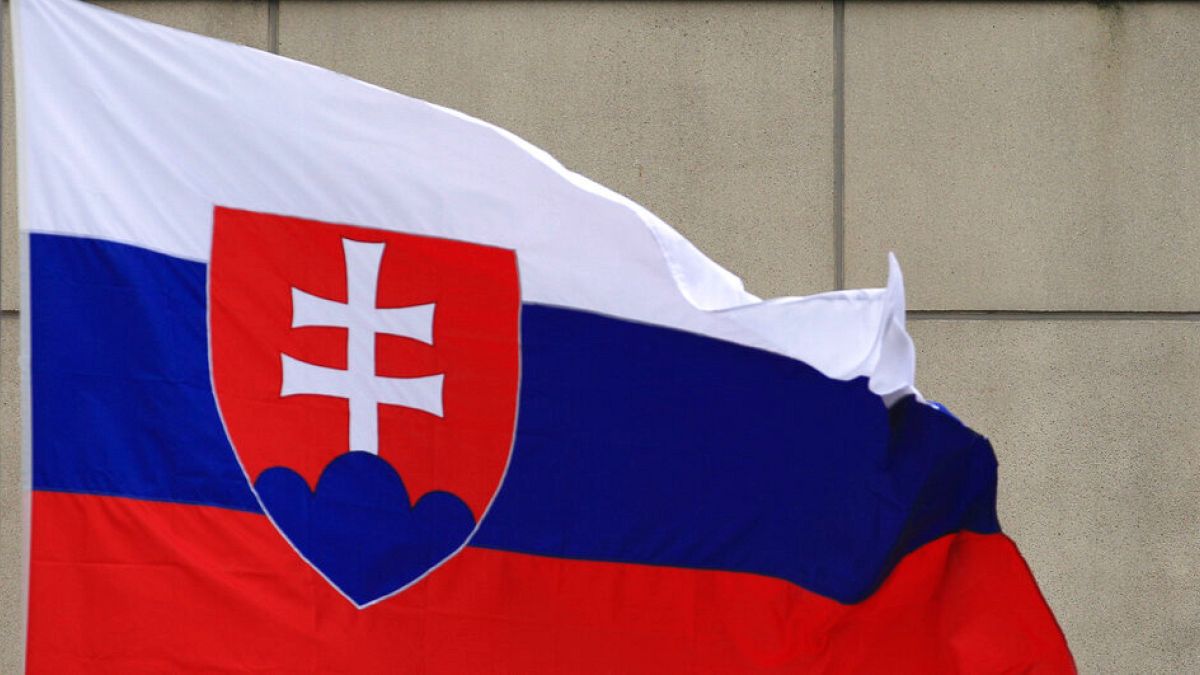Propaganda and attacks on LGBTQ people are prominent ahead of election which could decide whether the country moves politically closer to Moscow.
Voters in Slovakia are being inundated with misinformation from home and abroad in the run-up to the country's parliamentary elections on Saturday.
The vote could determine whether the country of 5.4 million moves closer to Moscow or not, with much of the false information coming from Russia.
Slovakia, part of the EU and NATO, has been the target of disinfo campaigns for years.
"The disinformation ecosystem in Slovakia is now reaching its peak," said Peter Duboczi, editor-in-chief of Infosecurity.sk, noting the upcoming election is the first in recent years to reflect the "full potential" of its effects.
According to him, Slovak politicians are the main purveyors of disinformation.
Analysts point the finger at three parties making false anti-Ukrainian and pro-Russian allegations: former Prime Minister Robert Fico's left-wing Smer-SD party, the nationalist Republika party and the Slovak National Party (SNS).
Fico is the favourite to become the new head of government and, according to the polls, both Republika and SNS are expected to garner enough votes to win seats in Parliament.
These parties "use political manipulation as a campaign tool", said Tomáš Krissak, an analyst at Gerulata Technologies, a start-up specialising in hybrid threats.
London-based non-profit organisation Reset claims to have recorded more than 365,000 election-related disinformation messages on Slovak social networks in the first two weeks of September.
It found messages violating social network terms of use and containing disinformation generated more than five times as much exposure as the average message.
More than 15% of such content was posted by pro-Kremlin accounts, the organisation said in a report.
Before the upcoming election, Fico and Milan Uhrik of Republika warned voters of possible electoral fraud, without providing any evidence for their claims, a strategy used by Donald Trump ahead of the 2020 US election.
Fico recently claimed the war in Ukraine began in 2014 with Ukrainian "fascists" killing Russian civilians. This unproven claim is often used by the Kremlin and allied media.
Andrej Danko, president of the SNS, for his part, declared in July the Russian-occupied territories were not "historically Ukrainian".
They act as "armed arms of Russian propaganda", says Duboczi.
Experts have observed "a significant increase in attempts to dehumanise the LGBTQ community", as well as efforts to socially exclude sexual minorities, according to Victor Breiner, an independent analyst specialising in hybrid threats.
Migrants from the Middle East, who cross the southern border with Hungary, are another popular campaign issue.
Slovakia's police chief, Stefan Hamran, recently urged politicians to refrain from migration-related misinformation, as it hinders police work.
Some of the misinformation spread since the invasion of Ukraine can be directly attributed to Russia, whose embassy in Slovakia is particularly prominent, experts say.
"Russia has systematically built a complex network of media niches, influencers and public figures that have infiltrated public discourse and political mobilisation," according to Breiner.
